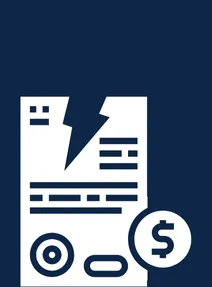Cooling-Off Period, Due Diligence, and Finance Clause
When you're buying a home or applying for a mortgage in Australia, you'll come across a few important terms that can impact your decision-making and legal
protection.
Here's a simple guide to help you understand what they mean—especially if you’re a first home buyer.
Cooling-Off Period, Due Diligence, and Finance Clause
When you're buying a home or applying for a mortgage in Australia, you'll come
across a few important terms that can impact your decision-making and legal
protection.
Here's a simple guide to help you understand what they mean—especially if
you’re a first home buyer.
Cooling-Off Period
The cooling-off period is a short window of time after signing a property contract when
the buyer can legally cancel the purchase—usually without major penalties.
In NSW, the cooling-off period is typically 5 business days
In VIC, it’s 3 business days
In QLD, it’s 5 business days
Buyers can withdraw from the contract during this time, often forfeiting a small
percentage of the deposit (e.g. 0.25% in NSW). This gives you time to reconsider or
finalise things like inspections or finance.
⚠️ Not all sales include a cooling-off period (e.g., auctions don’t), and it can be waived by
agreement, so always check the contract and your state’s laws.
Due Diligence Period
Due diligence is your chance to do deeper research before committing to a property. This
can include:
Building and pest inspections
Reviewing zoning laws
Checking strata reports or land titles
Confirming flood or bushfire risk
Some contracts allow for a formal due diligence period, especially in states like Tasmania
or ACT, where buyers can cancel the contract if serious issues are found.
Even if it’s not legally required, doing due diligence is highly recommended—it can save
you from costly surprises later.
Finance Clause
A finance clause (or subject to finance clause) protects you in case your home loan
application falls through.
This clause means the contract is conditional on you securing finance—usually within 14
to 21 days. If you’re unable to get approved for your loan during that time, you can
withdraw from the contract without losing your deposit.
Often used by first home buyers or borrowers with pre-approvals
Not included in all contracts—make sure it’s written in!
Without this clause, if your finance falls through, you could still be legally required to
settle the purchase, which can be financially risky.
Need Help Navigating These Terms?
Buying a home comes with a lot of moving parts—but you don’t have to figure it out alone.
The team at Winsquare Finance is here to help you understand the fine print, secure the
right loan, and move forward with confidence.
Book a free consultation today and let’s simplify the home buying process—together.
Related Topics
A break fee (or break cost) is a charge you may incur for ending a fixed-rate loan before the agreed term.
By linking a transaction account to your home loan, an offset account helps reduce the interest charged on your loan balance.
Lenders may discount parts of your income—like bonuses or casual earnings—when assessing your borrowing power. This is known as “income shredding” or an “income haircut.”
Understand how lenders determine your borrowing power and what factors impact loan approval. Learn how to improve your eligibility and maximise your home loan options.
Discover the five key factors lenders evaluate when assessing loan applications and learn how each plays a role in securing mortgage approval.
A high LVR could mean extra costs, while a low LVR can save you thousands. Find out why lenders care so much about this number.
Cooling-Off Period
The cooling-off period is a short window of time after signing a property contract when the buyer can legally cancel the purchase—usually without major penalties.
In NSW, the cooling-off period is typically 5 business days
In VIC, it’s 3 business days
In QLD, it’s 5 business days
Buyers can withdraw from the contract during this time, often forfeiting a small percentage of the deposit (e.g. 0.25% in NSW). This gives you time to reconsider or finalise things like inspections or finance.
⚠️ Not all sales include a cooling-off period (e.g., auctions don’t), and it can be waived by agreement, so always check the contract and your state’s laws.
Due Diligence Period
Due diligence is your chance to do deeper research before committing to a property. This can include:
Building and pest inspections
Reviewing zoning laws
Checking strata reports or land titles
Confirming flood or bushfire risk
Some contracts allow for a formal due diligence period, especially in states like Tasmania or ACT, where buyers can cancel the contract if serious issues are found.
Even if it’s not legally required, doing due diligence is highly recommended—it can save you from costly surprises later.
Finance Clause
A finance clause (or subject to finance clause) protects you in case your home loan application falls through.
This clause means the contract is conditional on you securing finance—usually within 14 to 21 days. If you’re unable to get approved for your loan during that time, you can withdraw from the contract without losing your deposit.
Often used by first home buyers or borrowers with pre-approvals
Not included in all contracts—make sure it’s written in!
Without this clause, if your finance falls through, you could still be legally required to settle the purchase, which can be financially risky.
Need Help Navigating These Terms?
Buying a home comes with a lot of moving parts—but you don’t have to figure it out alone. The team at Winsquare Finance is here to help you understand the fine print, secure the right loan, and move forward with confidence.
Book a free consultation today and let’s simplify the home buying process—together.
Related Topics
A break fee (or break cost) is a charge you may incur for ending a fixed-rate loan before the agreed term.
By linking a transaction account to your home loan, an offset account helps reduce the interest charged on your loan balance.
Lenders may discount parts of your income—like bonuses or casual earnings—when assessing your borrowing power. This is known as “income shredding” or an “income haircut.”
Understand how lenders determine your borrowing power and what factors impact loan approval. Learn how to improve your eligibility and maximise your home loan options.
Discover the five key factors lenders evaluate when assessing loan applications and learn how each plays a role in securing mortgage approval.
A high LVR could mean extra costs, while a low LVR can save you thousands. Find out why lenders care so much about this number.
© 2025 Estate Seeker.com.au - All Rights Reserved. Content on this site is for educational purposes only.
Always consult with a professional before making any investment decisions.









